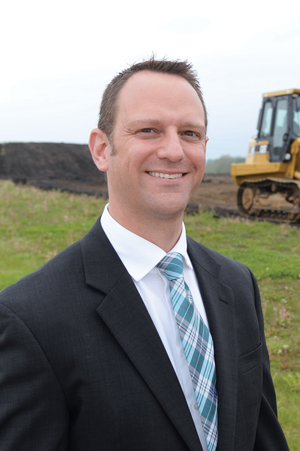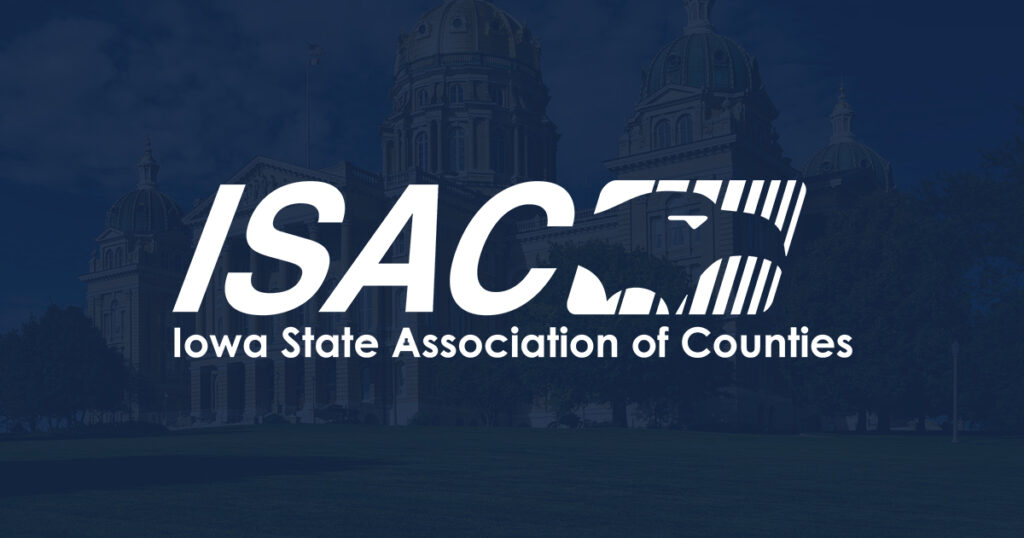A Closer Look: Ryan Waller
Indianola city manager

KENT DARR May 20, 2016 | 11:00 am
5 min read time
1,188 wordsBusiness Record Insider, Government Policy and LawRyan Waller is a Chicago native who attended the University of Iowa, then returned to Northern Illinois University to do graduate work. That’s where he fell in love with an Iowa girl, Elizabeth. For several years while he worked for city and county governments, the couple talked about returning to Iowa to live if they ever got the chance. As you might have guessed, the Wallers are back in Iowa, living in Indianola, to be exact, where he started work in mid-January as city manager. Following that storyline, Ryan found out after moving to the county seat of Warren County that distant relative, Ruth Patrick, had been a well-known bank teller in town and her husband, Jim Patrick, a longtime minister. Waller came to town when the city was considering a local option sales tax, a measure that has been a touchy subject for several years in Greater Des Moines. This discussion provides some insight into how Indianola supporters succeeded in winning approval for the 1-cent increase in the local sales tax.
Why Iowa?
For me it has always been about quality of life, and we always looked for opportunities to return to the state. My best friend is a dentist in West Des Moines, and his wife is a dentist in Indianola. They are godparents to our daughter. I was the best man at their wedding. I learned of another connection to Indianola (the Patricks) when I was having our house inspected. So fate has a really weird way of working out.
You had been on the job just a few months when Indianola voters approved a local option sales tax. What was the key to its passage, and what does the tax mean for the city?
First, what it means for the city: One hundred percent of what is raised will go toward the new wastewater treatment plant. The City Council is finalizing the facilities plan for the new plant. That is the important document, because that starts the permitting process with the Iowa Department of Natural Resources. Once we got the results of the election, we started working with our financial advisers to do financial modeling to see just how that financial picture is going to look. It will be a document that we are going to look at every year. We have to make sure that we are diligent in tracking the revenue that is coming in and doing our trend analysis. Preliminary financial modeling suggests that we won’t have to raise our wastewater rates for another six years. What that allows us to do is put money back into the system and make sure that the infrastructure for the sewer plant is in good working condition.
In terms of building a new facility, we are not under a mandate, but likely one would have come. Environmental standards are being passed that we couldn’t retrofit in the existing plant in a cost-efficient manner. Building new is the most economical avenue. It will allow us to plan for those new mandates coming down the line for wastewater treatment, and it will allow us to expand as the city of Indianola continues to grow. We can save for the plant and build the plant without raising rates for a good period of time. We plan to start construction in 2020, with completion expected in 2022.
What about the “yes” vote? Warren, Polk and Dallas counties tried a similar vote several years ago that was trounced at the polls.
I started working on that prior to officially starting here. I think the reason it was so successful were the efforts of the (City) Council. It was a true educational endeavor. Communications and engagement were the focal point of what we were trying to do, and that was to go out and talk to as many groups as possible. We went to the Rotary. We met with Kiwanis. We met with Lions. We went to the seniors facilities. We went to the school district. We made every effort to make sure people had factual information. We made ourselves accessible. We had open houses at City Hall for the month leading up the vote. People expressed their opinions during those conversations, but it was just an effort to make sure everybody had all the information they needed. It was a very healthy conversation back and forth. We used social media, our website, personal contact. A partnership with the chamber was instrumental in helping to spread the word.
How much do you use social media as way to get issues before residents?
It was funny. At my son’s soccer game I ran into a lady I hadn’t met before and had a really nice conversation. I said, “Oh, you’re so and so.” She said, “Yes, I’m stalking you on Facebook.” To me, that’s a good thing. Communication is extremely important to me. The four most important things in my management philosophy I call the four C’s: Communication, collaboration, customer service and community engagement. I was pleasantly pleased in hearing her say she stalked me, because I know that is one of the ways I can get information out there. People process information differently. Some people like the newspaper. Some people like it texted to them. Some people like the personal contact.
Were you surprised by the level of engagement in the local option debate?
I was not. One of the things that my wife and I talked about during my recruitment was the passion that you could sense from the people we talked to. Actually, when my contract was approved I had a great number of people send emails welcoming me and my family to the community. It was overwhelming. It was great. It was exactly why my wife and I wanted to move. Midwestern values, a sense of community. We saw that. But the other thing for me is that the council and I and the department heads and the staff at the city can do a better job when people are engaged. We are a representative form of government. If people are not engaged, we can’t tailor our efforts to what their needs are. I continue to be impressed with the passion and the pride that people have here.
Still, the margin of victory, more than 1,000 votes, was substantial.
It says a lot of things. For starters — and I had this conversation with the president of a bank the other day — he said it was either your sewer rates are going to go up or you’re going to get taxed. You pick. There’s some truth to that. But at the end of the day, what it tells me is that the council and all of the other parties that were used to communicate did a really good job of getting the information out. I think when folks are informed and understand what is at stake, then they understand that they have a hand in this and we work for them. The information was presented in a factual manner, and everybody had a choice. You can’t underestimate that grass-roots effort and the personal connection.










